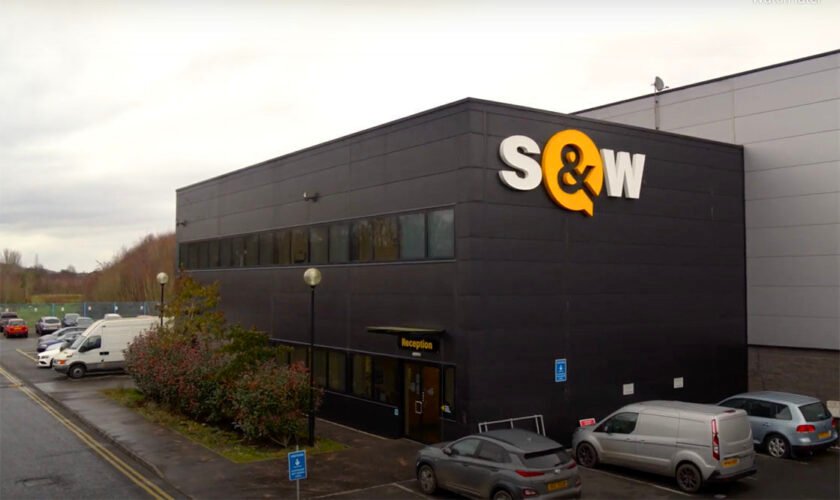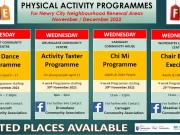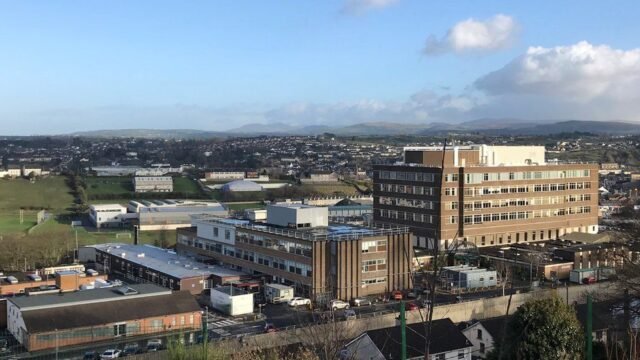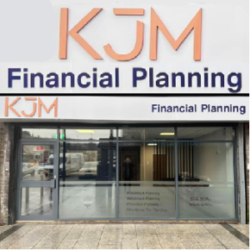A decision to remove emergency surgery from Daisy Hill Hospital has been discussed in an emergency debate by councillors in Newry.
The service is moving 20 miles away to Craigavon Area Hospital because of a shortage of senior doctors.
The Southern Health Trust, which runs both hospitals, said it was a temporary move which became necessary as it could not recruit enough surgeons in Newry.
But campaigners fear the move could be permanent and have vowed to fight it.
Ahead of Monday night’s council meeting, BBC News NI spoke to a veteran campaigner who has spent years opposing cuts to Daisy Hill and a senior doctor who argues patients will benefit from the move to Craigavon.
Daisy Hill on downward track?
John McArdle from the Daisy Hill Action Group is a former staff nurse who worked in the Newry hospital for more than 30 years.
He retired in 2001, but continues to campaign and is passionate about protecting the hospital’s services.
“If you have someone coming into the hospital very ill requiring emergency surgery there and then, if we don’t have it in Daisy Hill and they’re rushed to Craigavon, there’s a chance they could be dead on arrival,” he told BBC News NI.
The trust responded to concerns by saying the transfer to Craigavon was a “contingency solution to address a very immediate and major patient safety risk” because of the lack of surgeons in Newry.
But Mr McArdle is not alone in raising safety concerns about the distances patients will have to travel from parts of south Down and south Armagh.
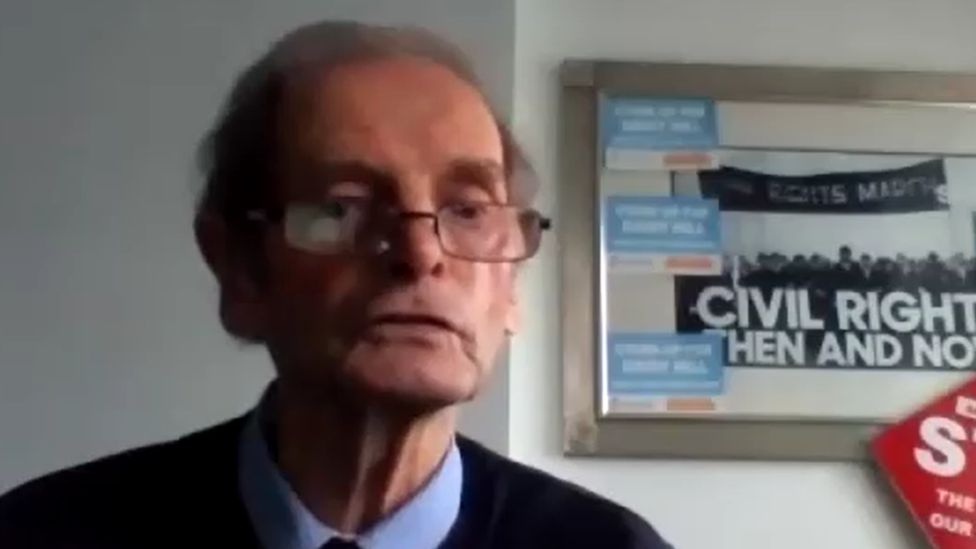
The Unite union said it was alarmed when the proposal was announced.
“Our members in the NI Ambulance service advise that this closure would leave people in Kilkeel, for example, 1 hour 10 minutes away from emergency surgery at Craigavon hospital – and that’s even in blue light conditions,” said regional health spokesman Kevin McAdam.

Why is surgery moving?
Daisy Hill Hospital has six permanent consultant general surgeon posts, only two of which are filled because of recruitment problems.
By the end of this month, only one consultant will be left, while in contrast, Craigavon has eight out of nine posts staffed.
“We cannot maintain a fully responsive emergency surgical service with one permanent surgeon at Daisy Hill,” said the trust’s director of acute services, Melanie McClements on 27 January.
“Recruitment of general surgical consultant posts has been an ongoing challenge across Northern Ireland and work has been progressing locally and regionally to develop more sustainable emergency and elective surgical services.”
The trust reassured the public the move will not affect Daisy Hill’s Emergency Department (ED), but campaigners are asking what sort of acute service will be left if emergency surgery is removed from Newry.

“People actually believe that we’re on a downward track in relation to the provision of healthcare in Daisy Hill,” said Mr McArdle.
The former SDLP councillor has been involved in several successful campaigns to prevent cuts to Daisy Hill, including its 24-hour emergency department, its stroke unit and its laboratory facilities.
He points to a previous controversy in 2017, when the trust proposed closing the ED for 12 hours overnight because of problems recruiting medical staff.
At that time, the Daisy Hill Action Group joined forces with unions and, after some packed public meetings and an independent review, the plan was retracted.
Instead, a £1.6m investment in Daisy Hill’s emergency services was announced, including a new patient assessment unit alongside its ED.
Mr McArdle and fellow campaigners are now preparing to take the trust on again, by organising public meetings and lobbying local politicians.
But recruitment is a widespread problem across the NHS and health experts have repeatedly warned that Northern Ireland’s health service needs major reform.
“I have no problem with centralisation, provided that we get an element of centralisation in Newry,” Mr McArdle said.
“Are our national insurance payments less valuable than they are in Belfast or Derry or Enniskillen?”
The pensioner said he will continue to campaign to protect his local hospital for the sake of his grandchildren and future generations.
The trust said it was preparing to consult the public on a “longer-term best practice model to improve both emergency and elective general surgery across the Southern area”.
‘It’s the right thing to do’
Dr Alexander Davey currently works as a fellow (senior doctor) in the high dependency unit in Daisy Hill and he supports the decision to move emergency surgery to Craigavon on the basis of patient welfare.
He was approached by BBC News NI for his views and spoke to us in a personal capacity – he was not representing the trust.
“I understand this is emotive for the citizens of the Newry and Mourne area and I totally understand they have concerns that things are being pulled out from underneath them,” he said.
But he argues that patients’ survival and recovery prospects are much better under the care of larger teams of highly-experienced surgeons who carry out such operations on a very regular basis.
“Emergency surgery is one of the highest-risk emergency conditions you can have. Your risk of death is easily between 10% and 40%, depending on your age and underlying illnesses,” he explained.
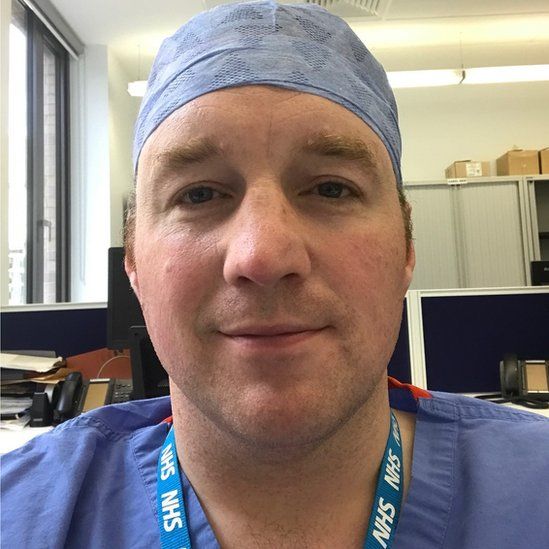
“You want that team to be experiencing that condition regularly, because that’s the only way that you’ll get absolutely every aspect of your care to the highest possible standard, and it’s simply not possible when you have a lower volume [of operations].”
During his 15-year medical career, Dr Davey has worked in several emergency departments and intensive care units in Northern Ireland, Scotland and London.
He has also been a case reviewer on the National Confidential Enquiry into Patient Outcome and Death and said it and other UK-wide audits have highlighted “the importance of high-reliability process of care”.
He wants politicians and the public to pay more attention to what happens, statistically, to surgery patients in different operation settings “not just in survival, but in their quality of life after a serious surgical illness”.
But is he not concerned that patients’ safety will be compromised by having a longer journey to theatre?
“I’ve worked in NHS Highland in Scotland where people would have to travel several hours to get to an acute unit, and we have smaller satellite units that refer onward to the central hospital,” he said.
“Having to go an extra 20 minutes to get care in the right place by the right team will not influence your outcome.”
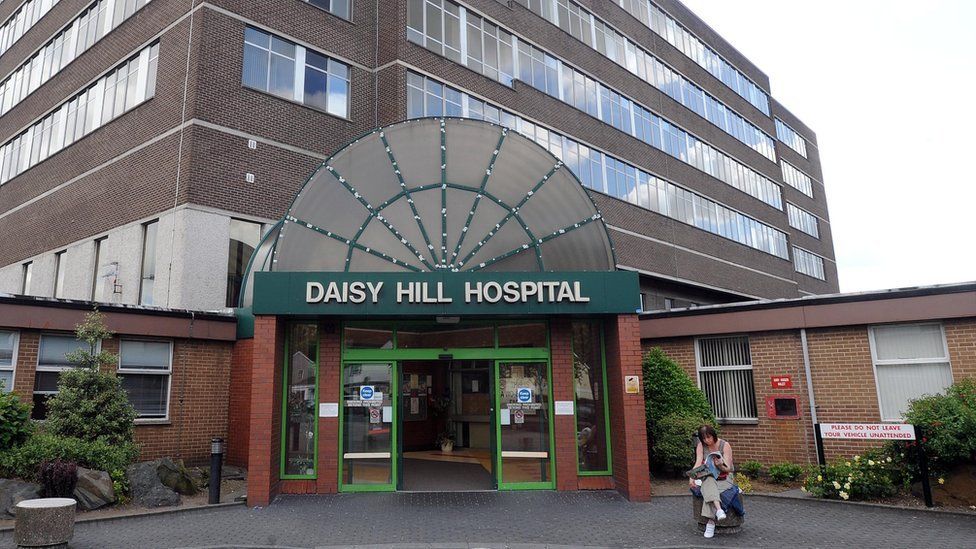
He agreed however, that the “patient journey” from when they first experience symptoms of a life-threatening condition, through to their operation, is very important and must be triaged correctly.
“To me, the travel time needs to be offset by broader investment in roads, in urgent care facilities, in ambulance networks and alternative pathways of care.”
He added that his key message about transferring emergency surgery from Newry to Craigavon was: “It’s the right thing to do, but we have to do it right.”
From a doctor’s point of view, why has Daisy Hill Hospital been unable to recruit consultant surgeons?
Dr Davey, who had just come off a night shift, said it has very little to do with anti-social working hours and more to do with the number and nature of operations carried out in Newry.
“Of course, you’re not going to recruit consultants who have a background in high-risk emergency surgery to a site where you are not exposing yourself to that procedure frequently enough to maintain your clinical decision-making and your surgical skills,” he said.
“You have to make sure that you plan for the right service, otherwise you’re going to be either wasting experience in a low-volume unit, or you’re going to be underusing the experience that already exists.”
However, he insists Daisy Hill is still a good option for ambitious doctors and believes there is scope for it to become an important site for elective surgery and cancer operations.
“From a workforce development and employment point of view, I would suggest there’s always a strong future for Daisy Hill Hospital to have an acute role and to be an attractive place to work.”




